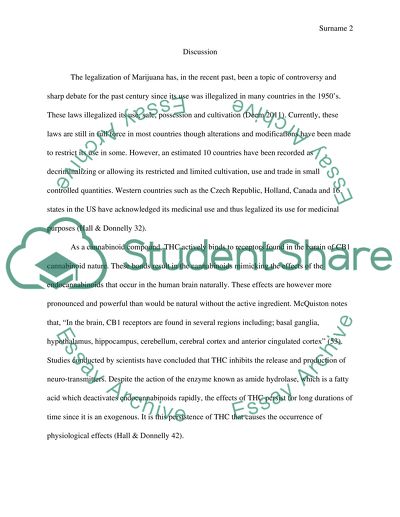Cite this document
(“Why Marijuana Should Be Legalized for the Medical Benefit/Purpose Research Paper”, n.d.)
Why Marijuana Should Be Legalized for the Medical Benefit/Purpose Research Paper. Retrieved from https://studentshare.org/health-sciences-medicine/1448491-why-marijuana-should-be-legalized-for-the-medical
Why Marijuana Should Be Legalized for the Medical Benefit/Purpose Research Paper. Retrieved from https://studentshare.org/health-sciences-medicine/1448491-why-marijuana-should-be-legalized-for-the-medical
(Why Marijuana Should Be Legalized for the Medical Benefit/Purpose Research Paper)
Why Marijuana Should Be Legalized for the Medical Benefit/Purpose Research Paper. https://studentshare.org/health-sciences-medicine/1448491-why-marijuana-should-be-legalized-for-the-medical.
Why Marijuana Should Be Legalized for the Medical Benefit/Purpose Research Paper. https://studentshare.org/health-sciences-medicine/1448491-why-marijuana-should-be-legalized-for-the-medical.
“Why Marijuana Should Be Legalized for the Medical Benefit/Purpose Research Paper”, n.d. https://studentshare.org/health-sciences-medicine/1448491-why-marijuana-should-be-legalized-for-the-medical.


